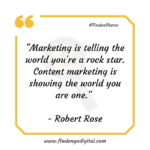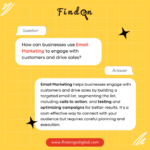FAQs
The essential elements of a website are a domain name, hosting, a website builder or CMS, content, design, and functionality.
A CMS (Content Management System) is a software application that enables users to create, manage, and publish digital content, usually in the form of websites.
The programming languages used for website development include HTML, CSS, JavaScript, PHP, Python, and Ruby, among others.
Responsive design is an approach to web design that ensures a website is optimized for different devices and screen sizes. It allows a website to adapt to different devices such as desktops, tablets, and smartphones.
Web hosting is a service that allows individuals and organizations to make their website accessible on the internet. It involves storing a website’s files and data on a server that is connected to the internet.
The time it takes to develop a website varies depending on several factors, such as the complexity of the website, the number of pages, the features required, and the availability of content. A basic website can take a few weeks, while a more complex website can take several months.
The cost of website development varies depending on several factors such as the type of website, the features required, the level of customization, and the developer’s hourly rate. A basic website can cost a few hundred dollars, while a more complex website can cost several thousand dollars.
Maintaining a website involves regularly updating the content, checking for broken links, updating the software, and making regular backups. It’s essential to keep the website up to date to ensure it remains secure and functions correctly.
SEO (Search Engine Optimization) is the process of optimizing a website to improve its visibility and ranking in search engine results pages (SERPs). It involves various techniques such as keyword research, on-page optimization, and link building.
SEO is important because it helps to increase the visibility and ranking of a website in search engine results pages. This can lead to more traffic, more leads, and more sales for businesses.
Keywords are words or phrases that people use to search for information on search engines. Keyword research is an essential part of SEO as it helps to identify the words and phrases that people are using to search for information related to a particular topic or industry.
On-page optimization refers to the process of optimizing individual pages on a website to improve their ranking in search engine results pages. This includes optimizing page titles, meta descriptions, header tags, and content for relevant keywords.
Link building is the process of acquiring links from other websites to your own website. This is an essential part of SEO as search engines consider the number and quality of links to a website when ranking it in search results pages.
A backlink is a link from one website to another website. Backlinks are important for SEO because they help to establish a website’s authority and credibility in the eyes of search engines.
A sitemap is a file that lists all the pages on a website and their relationship to each other. This helps search engines to crawl and index a website more effectively.
A meta description is a short summary of a webpage’s content that appears in search engine results pages. It’s important to write a compelling meta description that includes relevant keywords to encourage people to click through to your website.
The time it takes to see results from SEO varies depending on several factors such as the competitiveness of the industry, the level of optimization, and the effectiveness of the SEO strategy. Generally, it can take several months to see significant improvements in ranking and traffic.
When choosing a hosting provider, consider factors such as uptime, server speed, security, customer support, and pricing. It’s also a good idea to read reviews and compare features and pricing plans before making a decision.
The choice of hosting provider for your website will depend on a variety of factors, such as the type of website you have, the amount of traffic you expect, your budget, and your specific needs. Here are some things to consider when choosing a hosting provider:
- Type of hosting: There are several types of hosting, including shared hosting, VPS hosting, dedicated hosting, and managed hosting. Consider which type of hosting is best for your website.
- Uptime and reliability: Look for a hosting provider that offers high uptime and reliability, as you want your website to be available to visitors as much as possible.
- Server speed: A fast server is important for providing a good user experience and improving SEO.
- Customer support: Look for a hosting provider that offers 24/7 customer support and multiple ways to contact them, such as phone, email, and live chat.
- Security: Look for a hosting provider that takes security seriously and offers features such as SSL certificates, firewalls, and regular backups.
- Pricing: Consider your budget and compare pricing plans from different hosting providers.


